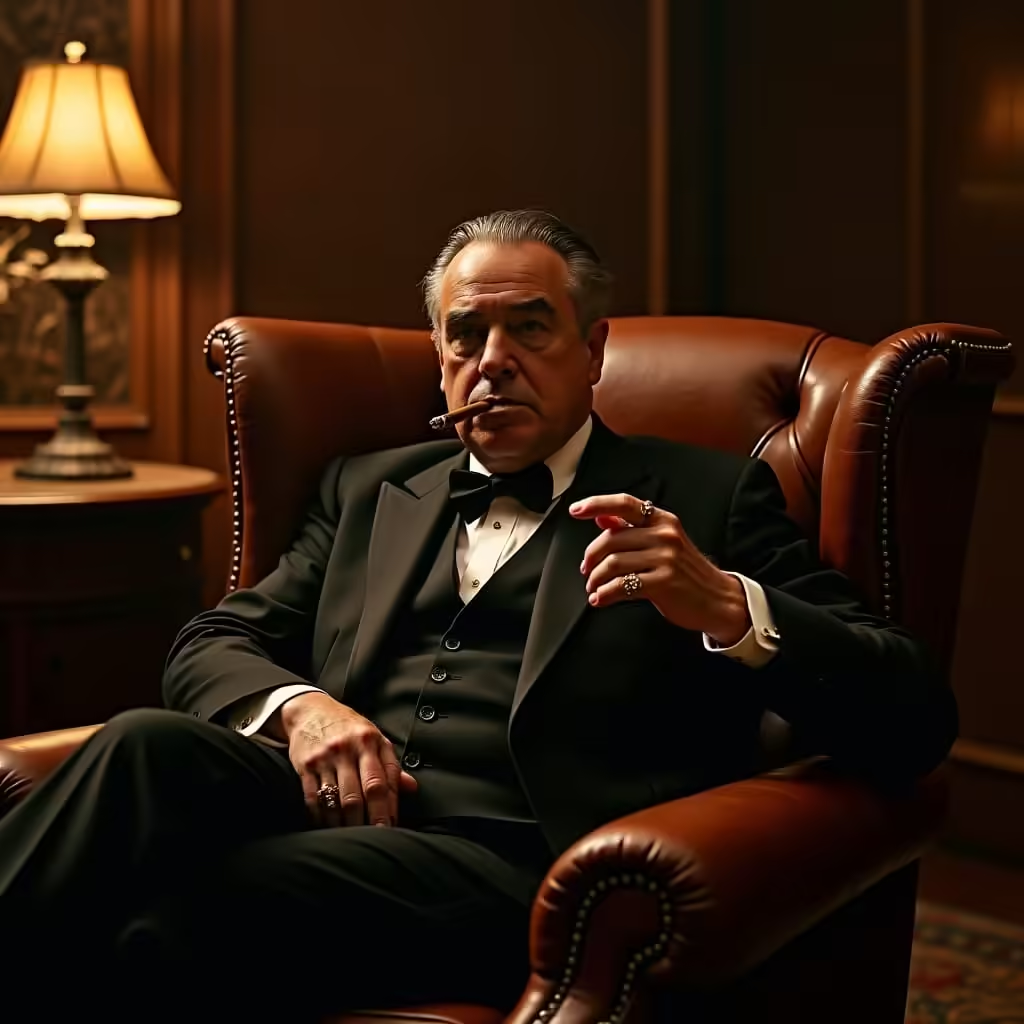The Godfather (1972) is not just a cinematic masterpiece; it’s a cultural phenomenon that has stood the test of time. As we celebrate the 50th anniversary of this epic trilogy, it’s worth diving into some lesser-known behind-the-scenes facts that contributed to the making of this iconic film.

1. The Studio Wanted a Shorter Cut
The Godfather is known for its nearly three-hour runtime, which allows it to explore the complex narrative fully. However, the studio initially pressured director Francis Ford Coppola to trim the film down to 2 hours and 15 minutes. Coppola complied, cutting out many layers of the story. But when the studio saw the shortened version, they realized it lacked the depth of the original and allowed Coppola to restore the cut to its original length.
2. The Mob’s Private Screening
Producer Albert S. Ruddy had to navigate real-life mob interests during the film’s production. To maintain peace, Ruddy arranged a private screening of The Godfather for the mob. The screening was a success, and the projectionist even received a $1,000 tip. Ruddy’s efforts to keep the mob satisfied likely contributed to his Best Picture Oscar win.
3. Frank Sinatra’s Displeasure
The character of Johnny Fontane, a singer-turned-actor with possible mafia ties, was believed by many to be based on Frank Sinatra. Sinatra was so displeased with the portrayal that he reportedly had his mob connections threaten the filmmakers. An encounter between Sinatra and author Mario Puzo at a restaurant became heated, with Sinatra allegedly accusing Puzo of working with the FBI.
4. Paramount’s Reluctance to Cast Marlon Brando
Despite his iconic performance, Paramount was initially against casting Marlon Brando due to his reputation for being difficult on set and a series of recent box office failures. Coppola insisted on Brando and convinced the studio to let him screen test. Brando’s unique audition, where he stuffed cotton balls in his cheeks to achieve Vito Corleone’s distinctive look, ultimately won the studio over. This risky casting decision paid off, earning Brando the Academy Award for Best Actor.
5. Joe Colombo’s Campaign Against the Film
The Italian-American Civil Rights League, led by crime boss Joe Colombo, campaigned against The Godfather, fearing it would reinforce negative stereotypes of Italian-Americans. To appease Colombo, producer Ruddy allowed him to review the script, leading to the removal of words like “mafia” and “Cosa Nostra.” This compromise helped secure the film’s release, though it temporarily cost Ruddy his job.
The Godfather remains a towering achievement in cinema, not only for its storytelling but for the fascinating real-life stories that surrounded its creation. These behind-the-scenes facts offer a glimpse into the challenges and triumphs that helped shape this legendary film.
The Godfather Synopsis
The Godfather is a legendary American crime film directed by Francis Ford Coppola, based on Mario Puzo’s best-selling novel of the same name. It’s considered one of the greatest films ever made, renowned for its complex characters, powerful performances, and exploration of family, power, and loyalty.
Plot Summary: The film follows the Corleone family, a powerful Mafia clan in New York City. Vito Corleone, the patriarch, is seeking to pass the leadership of his family to his youngest son, Michael, who is initially reluctant to join the family business. However, events unfold that force Michael to become involved, leading to a transformation from reluctant outsider to ruthless mafia boss.
Key Elements and Themes:
- Family: The Corleone family is at the heart of the film, with loyalty and honor being paramount.
- Power: The film explores the nature of power and the lengths people will go to attain and maintain it.
- Corruption: The film delves into the corrupt world of organized crime and its impact on society.
- Transformation: Michael Corleone’s transformation from innocent outsider to ruthless criminal is a central theme.
Notable Performances:
- Marlon Brando as Vito Corleone, the patriarch
- Al Pacino as Michael Corleone, the reluctant heir
- James Caan as Sonny Corleone, the eldest son
- Robert Duvall as Tom Hagen, the Corleone family’s consigliere
Legacy: The Godfather has had a profound impact on cinema, influencing countless films and television shows. Its iconic scenes, memorable characters, and timeless themes have solidified its place as a cinematic masterpiece.